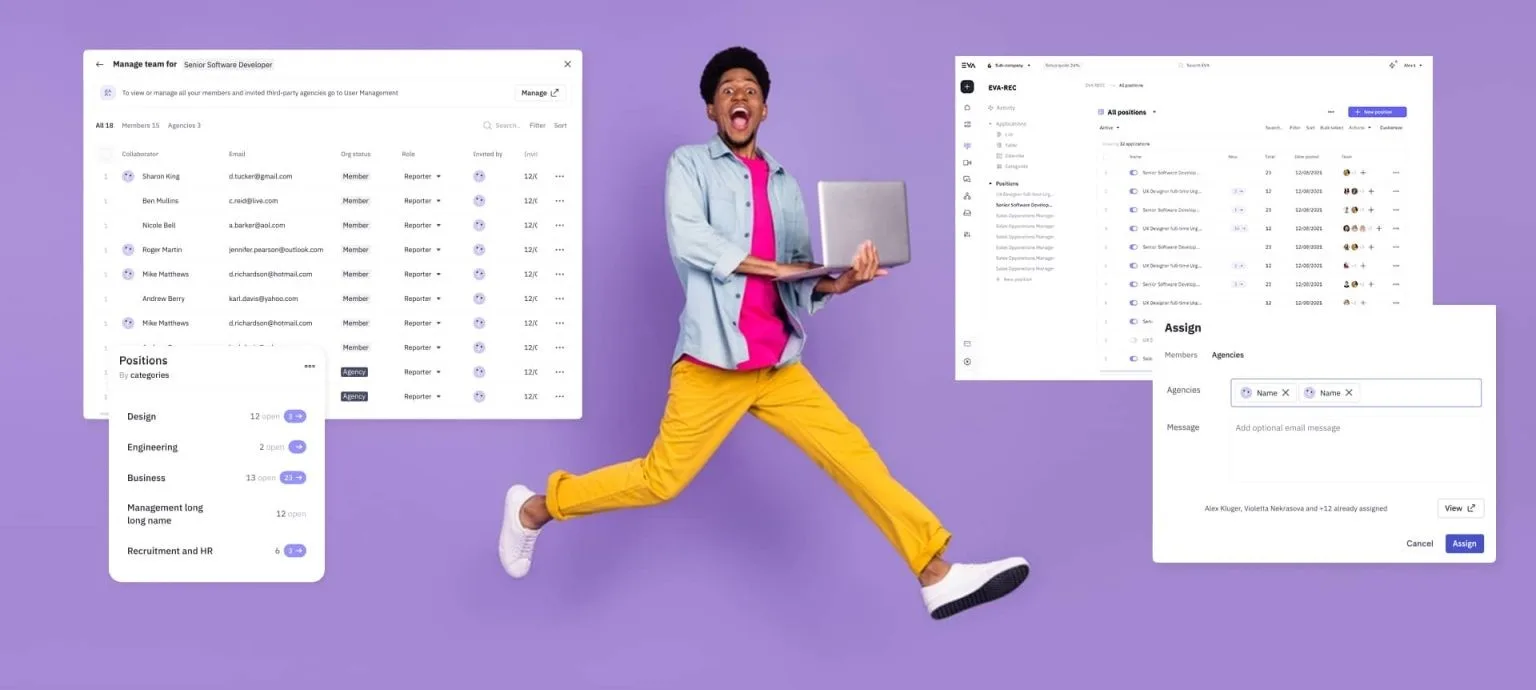Healthcare Hiring Trends 2026: How Technology Is Transforming Recruitment
The world continues to evolve, and so does healthcare. New hospitals, telehealth providers, and medical startups are rising everywhere — but along with that growth comes one big challenge: hiring and keeping the right people.
The demand for skilled healthcare professionals is skyrocketing, yet many organizations are still struggling with staffing shortages, burnout, and rising turnover.
The good news? Technology is stepping up — giving healthcare recruiters faster, smarter, and more reliable ways to attract and retain talent.
Let’s take a closer look at the latest hiring trends shaping the healthcare industry in 2026 — and how technology is making it all easier to manage.
The Current State of Healthcare Hiring
The healthcare labor market has been under pressure for years. Staffing shortages and burnout have become ongoing challenges, especially after the post-pandemic boom in healthcare demand.
Many organizations continue to rely on temporary labor and agency staff to fill critical roles — a short-term fix that increases costs and reduces long-term stability.
At the same time, healthcare professionals are prioritizing work-life balance, flexible scheduling, and purpose-driven workplaces. Burnout remains one of the top reasons clinicians and nurses leave their roles.
To keep up, healthcare providers need smarter strategies, faster hiring tools, and a genuine focus on employee experience.
- Leveraging Technology to Streamline Hiring
Technology has become the backbone of modern healthcare recruitment. From applicant tracking systems (ATS) to AI-powered screening tools, organizations are using tech to reduce time-to-hire and improve candidate quality.
If your recruitment team is still relying on spreadsheets and email threads, it’s time for an upgrade.
Elevatus is one example of a platform that’s helping healthcare providers stay ahead.
It offers the first and only AI-powered ATS tailored for healthcare in the MENA region — designed to handle local and global recruitment needs.
With Elevatus, healthcare groups can streamline every stage of hiring — from job postings and video assessments to onboarding — ensuring only the most qualified, trustworthy professionals make the cut.
- Building a Strong Employer Brand
Healthcare candidates today want more than a paycheck. They’re looking for employers who value growth, well-being, and impact.
That’s where employer branding plays a crucial role. A strong brand helps healthcare organizations stand out in a competitive job market and attract professionals who align with their mission.
Highlight your organization’s values, learning opportunities, and patient-centered culture through real employee stories. This not only draws top talent but also strengthens retention among existing teams.
- Prioritizing Social Responsibility
In 2026, job seekers increasingly want to work for employers who care — about their patients, their communities, and the planet.
Healthcare organizations that lead social responsibility initiatives — such as sustainability programs, community outreach, or equitable access to care — stand out from competitors.
By promoting these efforts, healthcare employers can appeal to candidates who share those values and want to make a meaningful difference through their work.
- Developing Strategic Talent Pipelines
The best healthcare employers don’t wait for vacancies — they build pipelines early.
This means engaging with potential candidates long before a role opens up, through professional networks, educational partnerships, or alumni groups.
Healthcare organizations that invest in talent communities can fill roles faster, reduce costs, and improve workforce stability. Proactive pipeline building also enhances an employer’s reputation as a destination for top talent.
- Planning for the Long Term
Healthcare hiring can’t just be reactive. With an aging global workforce and shifting patient demands, long-term workforce planning is essential.
That means forecasting future hiring needs, identifying skill gaps, and creating leadership development programs that prepare existing staff for future roles.
By taking a data-driven approach to planning, healthcare providers can ensure continuity, stability, and consistent patient care.
- Enhancing Candidate Experience
Today’s healthcare professionals want a transparent, respectful, and personalized hiring experience.
From the first application to the final offer, communication and clarity matter. Recruiters who respond quickly, provide feedback, and offer flexible interview formats build trust and excitement with candidates.
A smooth, tech-enabled experience powered by automation — like the one Elevatus provides — ensures candidates feel valued and respected at every stage.
- Promoting Diversity and Inclusion
Diversity isn’t just a buzzword — it’s a necessity for innovation and better patient outcomes.
Healthcare providers are increasingly prioritizing inclusive hiring practices, such as removing bias from job descriptions, offering training for hiring managers, and building diverse candidate pools.
AI-powered tools, when designed responsibly, help support these efforts by focusing on skills, qualifications, and cultural fit rather than subjective impressions.
Concluding Thoughts: Staying Ahead in Healthcare Recruitment
Healthcare recruitment is evolving fast, and technology is leading the way.
From smarter automation to AI-powered insights, the tools now available make it possible to hire faster, fairer, and with more confidence.
But technology alone isn’t enough. Success lies in combining these innovations with empathy, strategy, and long-term planning.
By leveraging platforms like Elevatus, healthcare providers can transform hiring into a competitive advantage — attracting skilled, passionate professionals who drive better patient care and sustainable growth.
In 2026, the future of healthcare hiring is human — powered by technology.




